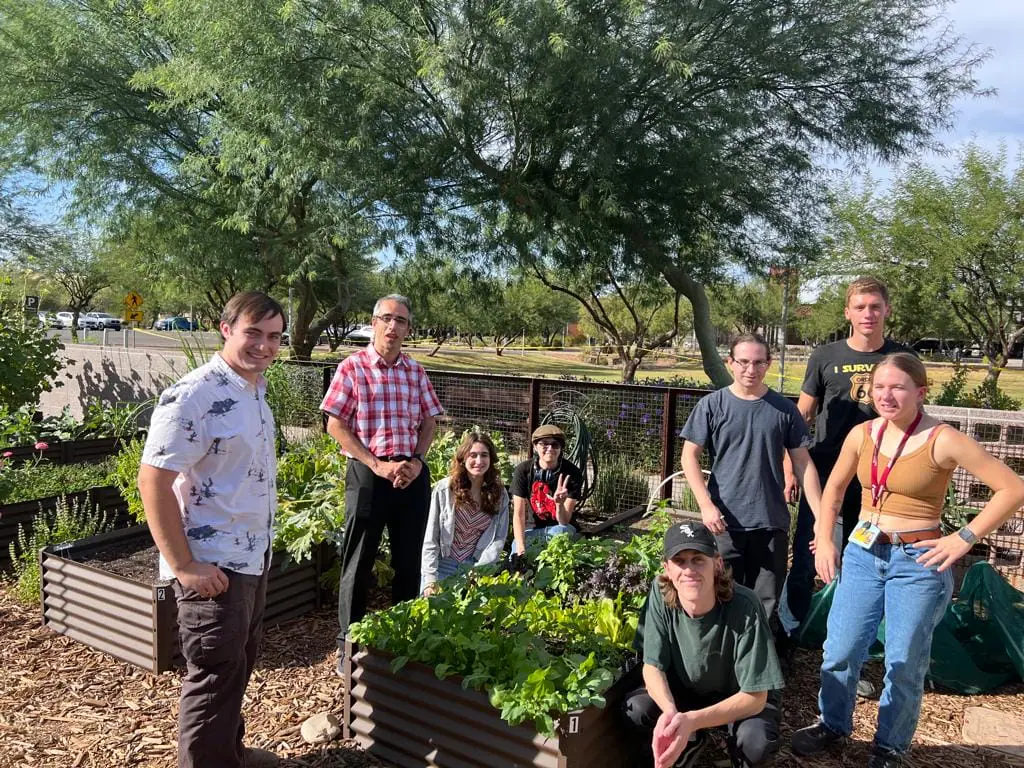In this series, we're sitting down with Swette Center affiliated faculty to catch up on food systems, innovation, and what makes a good meal. See the rest of the series on our Faculty Profiles page.
Read on for an interview with Siamak Shirani Bidabadi, Assistant Teaching Professor in the School of Applied Sciences and Arts.

How did you become interested in food systems?
My background is in horticulture and plant science, but over time, I became increasingly focused on the sustainability aspect of this field, and started exploring how we can grow food responsibly while protecting soil, water, and biodiversity. When I teach, I always encourage students to view sustainable horticulture as producing high quality food without causing damage to the environment. Living and working in an arid environment like Arizona has also shaped my perspective on this. It's clear that food production must adapt to climate constraints that we have, like drought, and I want to help students and their communities better understand how to grow food sustainably in these conditions.
Can you share a glimpse of your current research and how it relates to food systems transformation?
I am an assistant teaching professor, but I also have a strong background in sustainability research. My research centers around sustainable horticulture practices and soil sciences, particularly in dryland environments. I teach and research topics like organic gardening, regional soil management, and plant responses to environmental resources. More recently, I have focused on the application of nanotechnology to help crops better withstand stressful conditions. I first explored this when I was in Michigan, where I worked on improving the stress responses of grapes for two and a half years. One of the sustainable approaches we found was using nanotechnology to improve the grapes’ resistance to cold stress. But since then, I have learned that nanotechnology is also very helpful for increasing crop resistance to drought, which is a much bigger challenge here in Arizona.
What’s an innovation in food systems you’re excited about?
I'm particularly excited about innovations that empower individuals and small communities to produce their own food, such as regenerative gardening practices, climate adapted crop varieties, and soil microbial restoration. These tools and techniques that make home and community gardening more accessible and efficient can play a big role in transforming our food system from the ground up.
What’s your favorite weeknight meal?
I’m from Iran, where many of our local foods feature rice and a variety of vegetables, which I love because it’s nutritious, satisfying, easy to prepare, and sustainable. So, I must say one of my favorite weeknight meals is a lentil and vegetable stew, seasoned with herbs that I grow at home. I always try to cook with the food that I grow, because I most enjoy meals that reflect the principles I teach: fresh, seasonal, and connected to the garden.